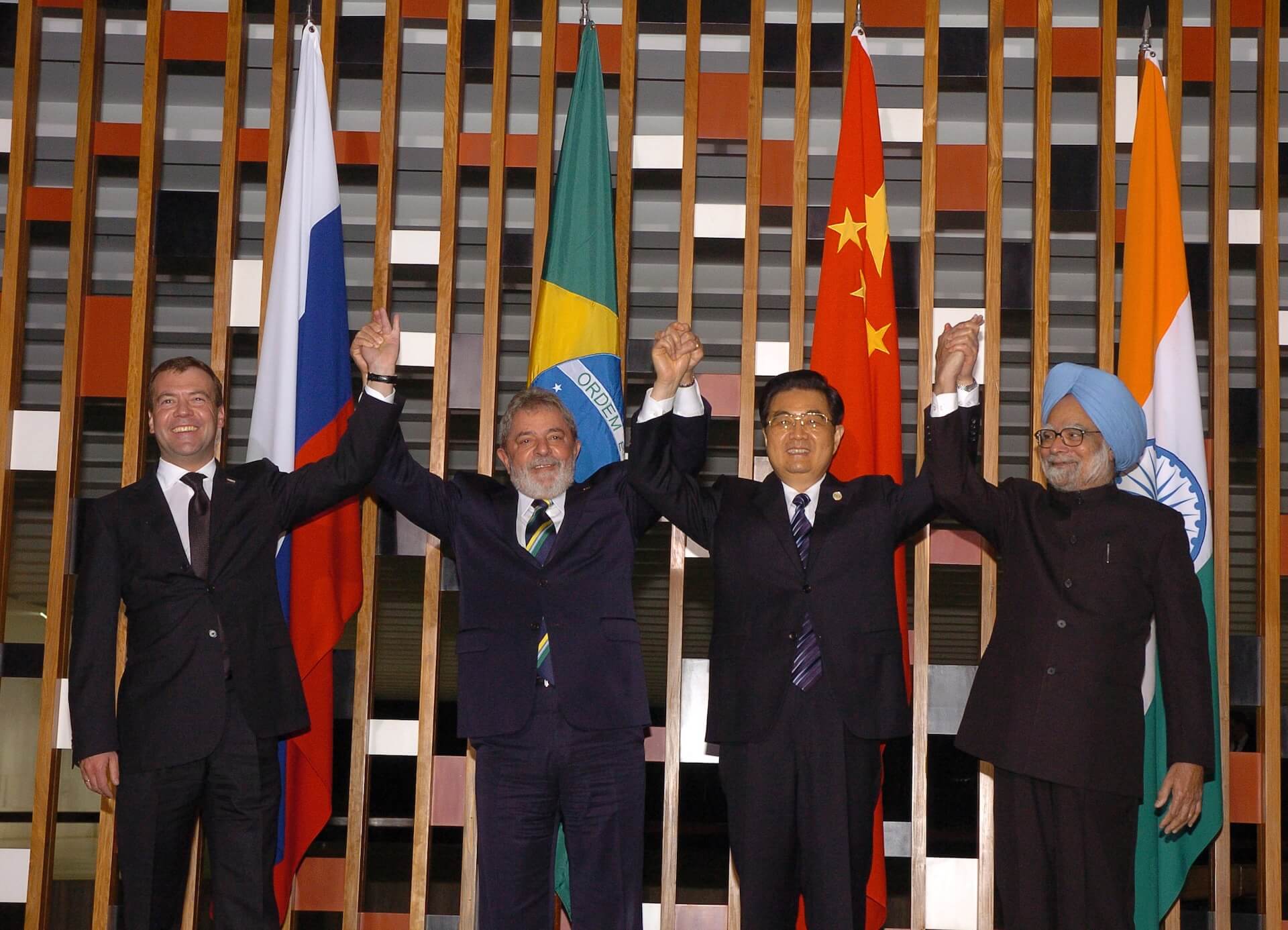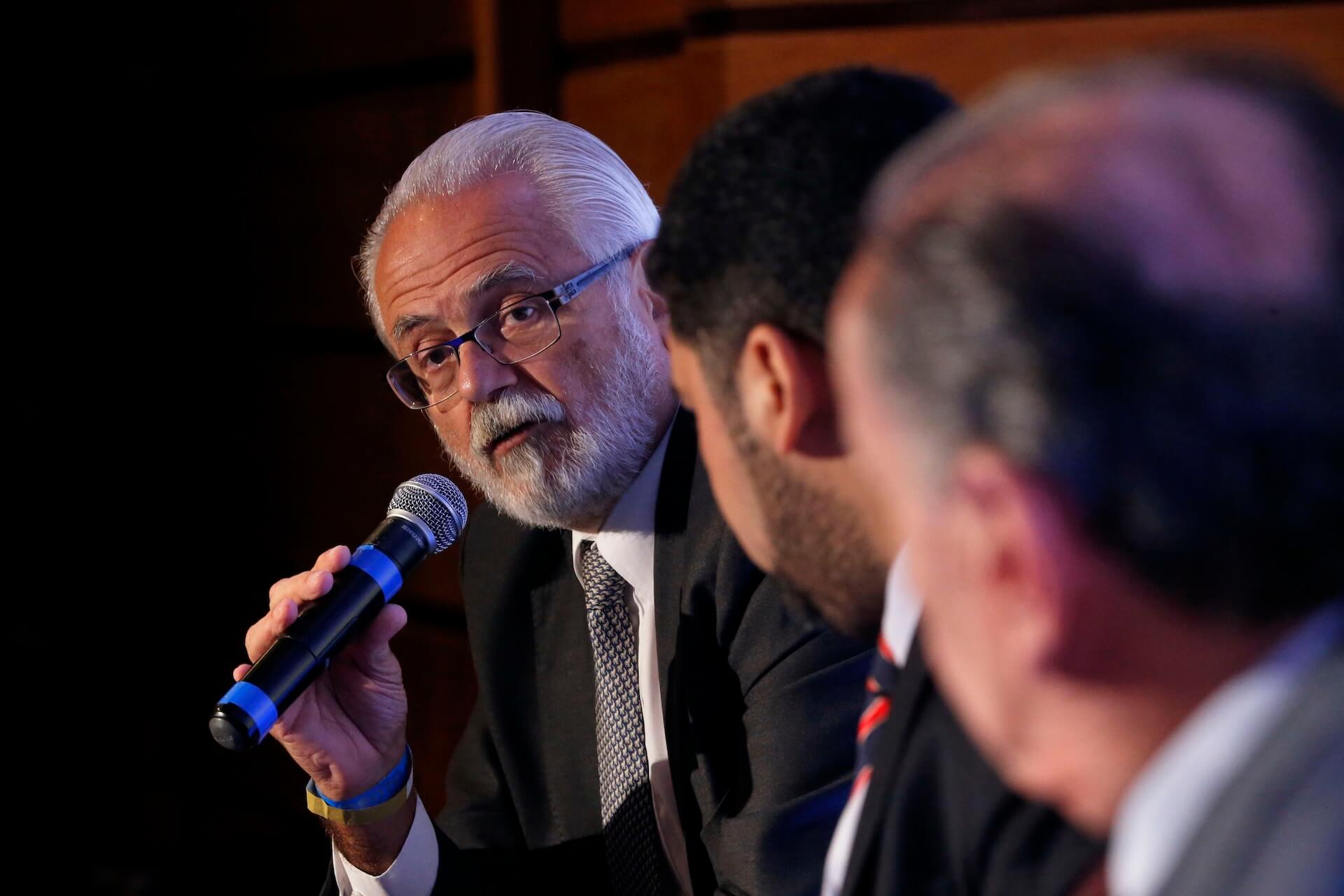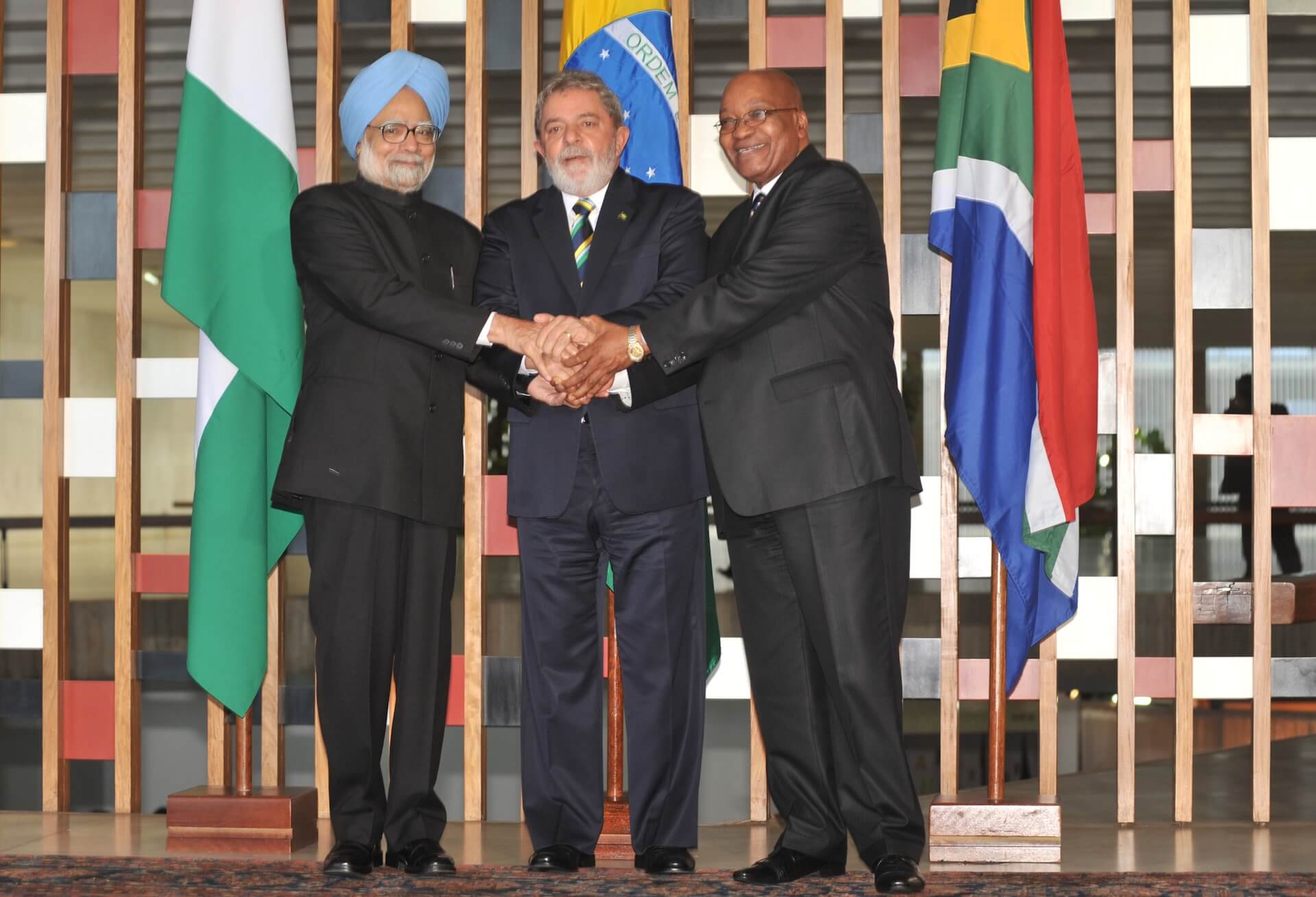Fifteen years ago, Brasil hosted the BRICS Summit for the first time
In 2010, the country hosted the 2nd BRICS Summit, at a time when the group was still taking shape. Topics discussed then continue to resonate on the BRICS agenda today.

By Franciéli Barcellos de Moraes / francieli.moraes@presidencia.gov.br
Over the 16 years since the first Summit of the leading cooperation forum for Global South countries —held in Yekaterinburg, Russia, in 2009— many significant advances have taken place. Among them are the strengthened participation of civil society through the People-to-People (P2P) pillar; increased focus on key issues shaping the global agenda, such as governance of artificial intelligence and cooperation to eliminate socially determined diseases; and the creation of the New Development Bank (NDB), which now operates with an authorized capital of USD 100 billion, among other milestones.
"[...] things happened all at once. For me, it was essentially a continuous 48-hour stretch with almost no sleep, due to the demands that kept arising [...]"
Yet, the commitment to securing greater visibility and representation for the Global South in international political and economic dynamics remains strong. This has been a central theme in the bloc’s negotiations since the 2nd BRICS Summit, held in Brasil in 2010, and has served as a key marker of the group's commitment to these values.
“We were in Russia for the first Summit, where we transmitted the following idea: look, President Lula will leave office in Brasil at the end of 2010, this is the last year of his administration, and he would really like to host a second meeting of BRICS leaders. We hope you do not oppose it. And nobody did. From there, we already know that, in practical terms, it would mean that the meetings would take on an annual format,” recalls Ambassador Roberto Jaguaribe, who acted as BRIC Brasil 2010 Sherpa and led the discussions.
Hence, exactly fifteen years ago, on April 15, 2010, Brasil hosted a summit of the BRICS (which still went by BRIC at the time) for the first time in the last event before the formal entry of South Africa as a group member.
Until then, the group of Global South nations had only held one formal encounter under the acronym, in Russian territory the previous year, and resolutions regarding its structural, negotiation formats, and cooperation were still maturing. The first Brazilian presidency inaugurated several meetings, including: of Ministers of Agriculture and Agrarian Development; Heads of National Statistical Institutes; Cooperatives; the Business Forum; and Development Banks - a seed planted four years before the establishment of the New Development Bank (NDB), when Brasil presided the group in 2014.

Ambassador Jaguaribe recalls that since that moment, other nations already indicated their interest in joining the group. He remembers the process of organizing the 2nd Summit, which had to be anticipated due to an earthquake in the Chinese province of Qinghai. “The original proposition was to have a Sherpas Meeting followed by the Meeting of Ministers of Foreign Affairs, and then a Leaders Meeting. But things happened all at once. For me, it was essentially a continuous 48-hour stretch with almost no sleep, due to the demands that kept arising,” he recalled, emphasizing that the unexpected challenges did not compromise the delivery of a cohesive Final Declaration.
“We have taken an important step toward consolidating a partnership that began in Yekaterinburg last year. We decided to deepen cooperation within the BRIC framework, and we are confident that the convergence achieved here will contribute to the creation of a space for dialogue and coordination,” President Lula told the press at the end of the plenary session held fifteen years ago in Brasilia, the nation’s capital.
IBSA and South Africa
Even though South Africa only joined BRICS as a member the following year, in 2011, under China’s presidency of the group — an event that redefined the acronym into the version we know today — cooperation between South Africa, Brasil, and India preceded that. IBSA — the India, Brasil, and South Africa Dialogue Forum — had already been working to strengthen the Global South, having been consolidated through a Brazilian initiative.

In addition to being one of the idealizers of BRICS, Ambassador Celso Amorim —who acted as Brasil’s Minister of Foreign Affairs from 2003 to 2010— was also the architect of the Forum. The launch of the initiative, back in 2003, was the first product in the roll of foreign policy commitments from Luiz Inácio Lula da Silva’s first administration.
“The organization was born from an idea by Minister Celso Amorim. He saw the high-level envoys from these countries gathered at the Itamaraty Palace for President Lula’s inauguration and thought: wow, this is the embryo of a group with great potential relevance,” shared Ambassador Jaguaribe.
Seven years later, on April 14, 2010, the city of Rio de Janeiro hosted the first IBSA-BRIC seminar, strengthening the ties between South Africa and the recently created group. On the following day (15), in Brasilia, the 2nd BRIC Summit and the 4th IBAS Summit took place simultaneously. “This is a very special week for Brasil. We organized two Summit meetings with some of the most important countries for the new global governance,” stated Lula on the occasion.
Priorities aligned with the group’s history
“We share the perception that the world is going through great and rapid changes that highlight the need for corresponding transformations in global governance in all relevant areas”.
This opening extract from the Leader Declaration of the II BRICS Summit could easily have been written in the present context, as it was already indicative of the complexity of the challenges of the globalized world in the 21st century, as well as of the group’s pragmatic coherence throughout the years.
As an instance established to address the unrest related to international issues, particularly the dissatisfaction towards the level of participation of these nations in the most expressive instances of public global governance, issues that are currently examined by the BRICS working groups (a structure that had not yet been formalized at the time) were already central to the discussions in 2010.
The group’s second declaration already mentions the interest in facilitating monetary cooperation through commercial transactions in local currencies; coordinating efforts for social inclusion and combating poverty; committing to a strengthened multilateralism; and a call for an open and merit-based selection method, regardless of nationality, for leading positions at the International Monetary Fund (IMF) and the World Bank, as well as a claim for greater room for the participation of developing countries.

BRICS since then
While the group priorities are still the same, the density of cooperation arrangements, international visibility, and the number of nations that already take part is no longer the same. Considering that the full composition lasted 14 years (Brasil, Russia, India, China, and South Africa), the increase in the number of countries —members and partners— formally implicated in the goals of Global South cooperation represents 300%.
In addition to maintaining its priorities, according to both Jaguaribe and Amorim, another element that has not been altered —but rather solidified— is the group’s pertinence as a resonance box for the voices and policies of Global South countries.
“Things are much more complex and the current reality provides indisputable evidence of it. But have known for a long time that we are in what we call today the Global South, and that the world is not exactly as the prevalent narrative says it to be. I have no question that the creation of this group has given voice to concepts and perceptions that would not have gained such visibility otherwise,” said the first Brazilian Sherpa.
"I have no question that the creation of this group has given voice to concepts and perceptions that would not have gained such visibility otherwise."
In an exclusive interview with BRICS Brasil, Amorim goes in the same direction as his diplomatic colleague, stating that “the BRICS idea of cooperation is very important because it showed the western capitalist countries that they cannot dictate the rules; they present initiatives, but they will have to discuss them with us”.
This year’s Summit —the fourth taking place in Brazilian territory— will take place on July 6 and 7, and for the first time in the city of Rio de Janeiro. At the opportunity, the city —which was the country’s capital before Brasilia was built— will receive both the authorities from the 11 member countries and of the partner countries.
English version: Mary Aune.
Proofreading by Enrique Villamil.